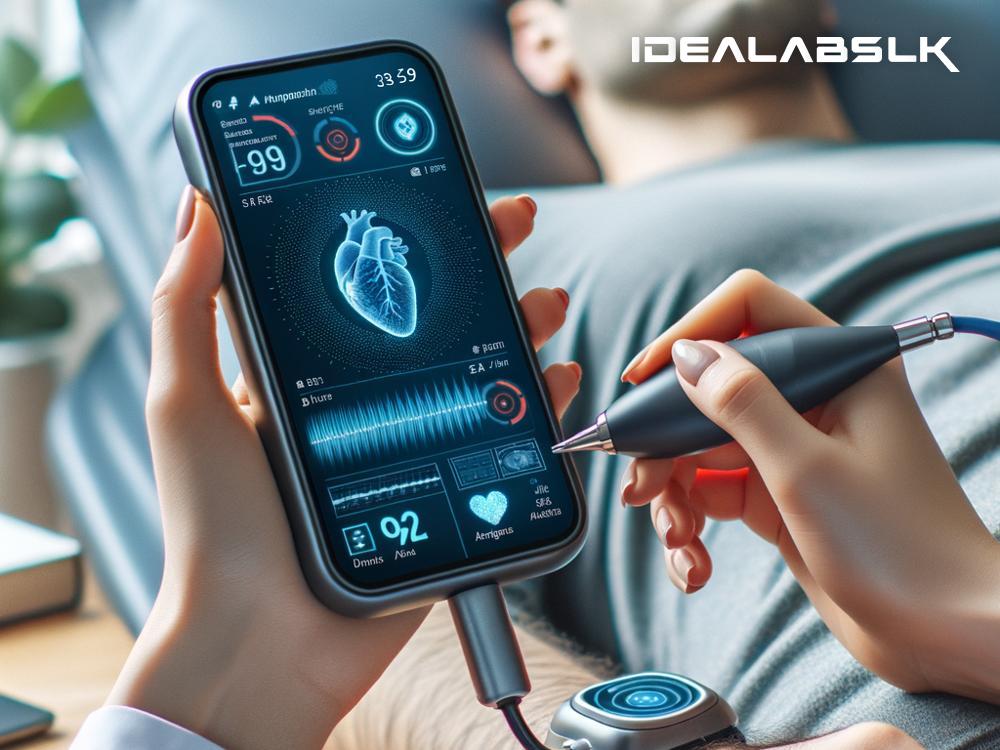The Marvels of Modern Medication: How AI is Transforming Real-Time Diagnostics
In today’s fast-paced world, waiting seems like an outdated concept, especially when it comes to our health. The development of medical gadgets enhanced by Artificial Intelligence (AI) is pioneering a new era where waiting for diagnostic results could soon become a tale of the past. AI is making it possible for medical devices to perform real-time diagnostics, bringing about a healthcare revolution that makes timely and accurate healthcare accessible to everyone. But what exactly is this technology, and how does it work its magic? Let's explore the wonders of AI in medical diagnostics in simple terms.
Understanding AI in Medical Gadgets
Imagine having a smart assistant that learns from every task it performs, getting better and smarter over time. That's AI in a nutshell. When integrated into medical gadgets, this smart assistant doesn't just follow commands; it observes, learns, and makes decisions based on vast amounts of data it has been fed. This capability transforms ordinary gadgets into powerful tools capable of identifying health issues in real time, offering a glimpse into the future of medical diagnostics.
The Magic Behind Real-Time Diagnostics
The core of real-time diagnostics lies in the ability to process and analyze data instantly. When a sample, let’s say blood, is fed into an AI-powered gadget, the device examines the sample based on a vast dataset of medical information. It looks for patterns, markers, and anomalies that might indicate a health condition. Unlike traditional methods that often involve sending samples to a lab and waiting for the results, these smart gadgets provide immediate insights, thanks to their on-board AI.
The Benefits Are Clear and Many
The advantages of integrating AI into medical diagnostics are game-changing. Here are a few:
- Speed: Immediate results mean immediate action can be taken. In critical conditions, this could save lives.
- Accessibility: With portable AI-powered gadgets, diagnostics can be conducted from anywhere - a boon for remote or underserved areas.
- Precision: AI learns from each diagnosis it makes, improving its accuracy over time and potentially reducing the chances of human error.
- Predictive Analytics: Beyond diagnosing existing conditions, AI can predict potential future health issues based on trends in the data, opening doors for preventative healthcare.
From Theory to Reality: AI Diagnostics in Action
The practical applications of AI in diagnostics are broad and varied. Let’s consider a few examples to bring this concept to life:
- Smart Stethoscopes: These devices can record and analyze heartbeats in real-time, using AI to detect abnormalities that could suggest conditions like arrhythmias or heart failure.
- Wearable Health Monitors: Devices like smartwatches already use AI to monitor heart rate, oxygen levels, and even detect falls. The future could see them diagnosing conditions based on these metrics.
- Portable Ultrasound Devices: AI-enhanced ultrasound gadgets are making it possible for non-specialists to perform scans and receive immediate feedback, democratizing access to essential diagnostic procedures.
Navigating Challenges and Looking Ahead
While the integration of AI into medical diagnostics opens up exciting possibilities, it’s not without challenges. Data privacy, the need for vast amounts of training data, and ensuring AI systems make culturally sensitive and unbiased decisions are areas requiring rigorous attention.
Moreover, the human touch remains irreplaceable in healthcare. AI is not here to replace doctors but to augment their capabilities, providing them with tools that allow for more accurate and faster decision-making. The future of healthcare is a harmonious blend of human expertise and AI efficiency.
The Road to a Healthier Tomorrow
The integration of AI into medical gadgets is indeed like unlocking a new level in the game of healthcare, one where real-time diagnostics empower doctors and patients alike with immediate insights and actionable health information. As technology advances and becomes more embedded in our daily lives, the potential for AI in healthcare is limitless.
Imagine a future where a routine check-up is as simple as using a smart device at home, where waiting days for a diagnosis becomes an old story. We are on the brink of this reality, thanks to the wonders of AI in medical diagnostics. The path forward is not without hurdles, but the promise of a healthier, more accessible, and efficient healthcare system is a goal worth pursuing. With AI, we are not just dreaming of a better future; we are actively building it, one diagnosis at a time.

